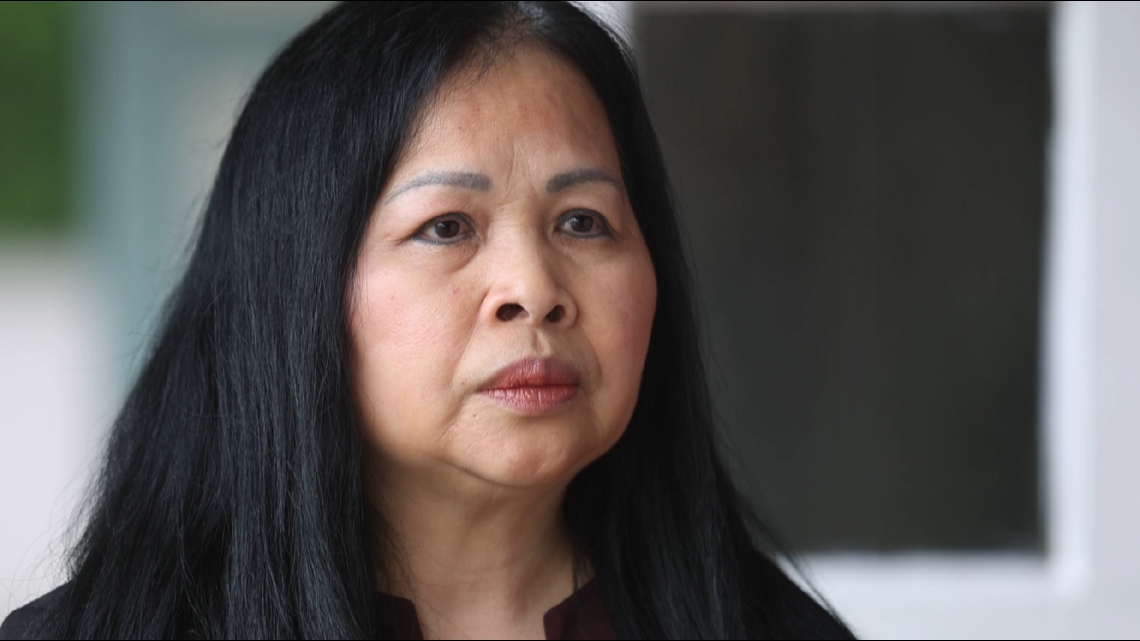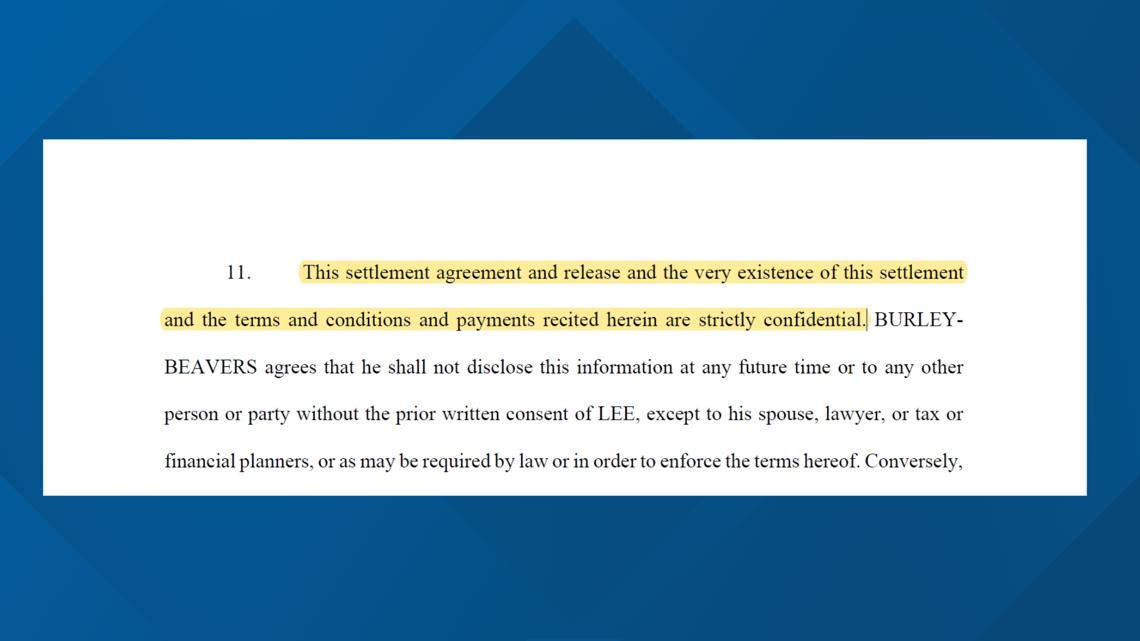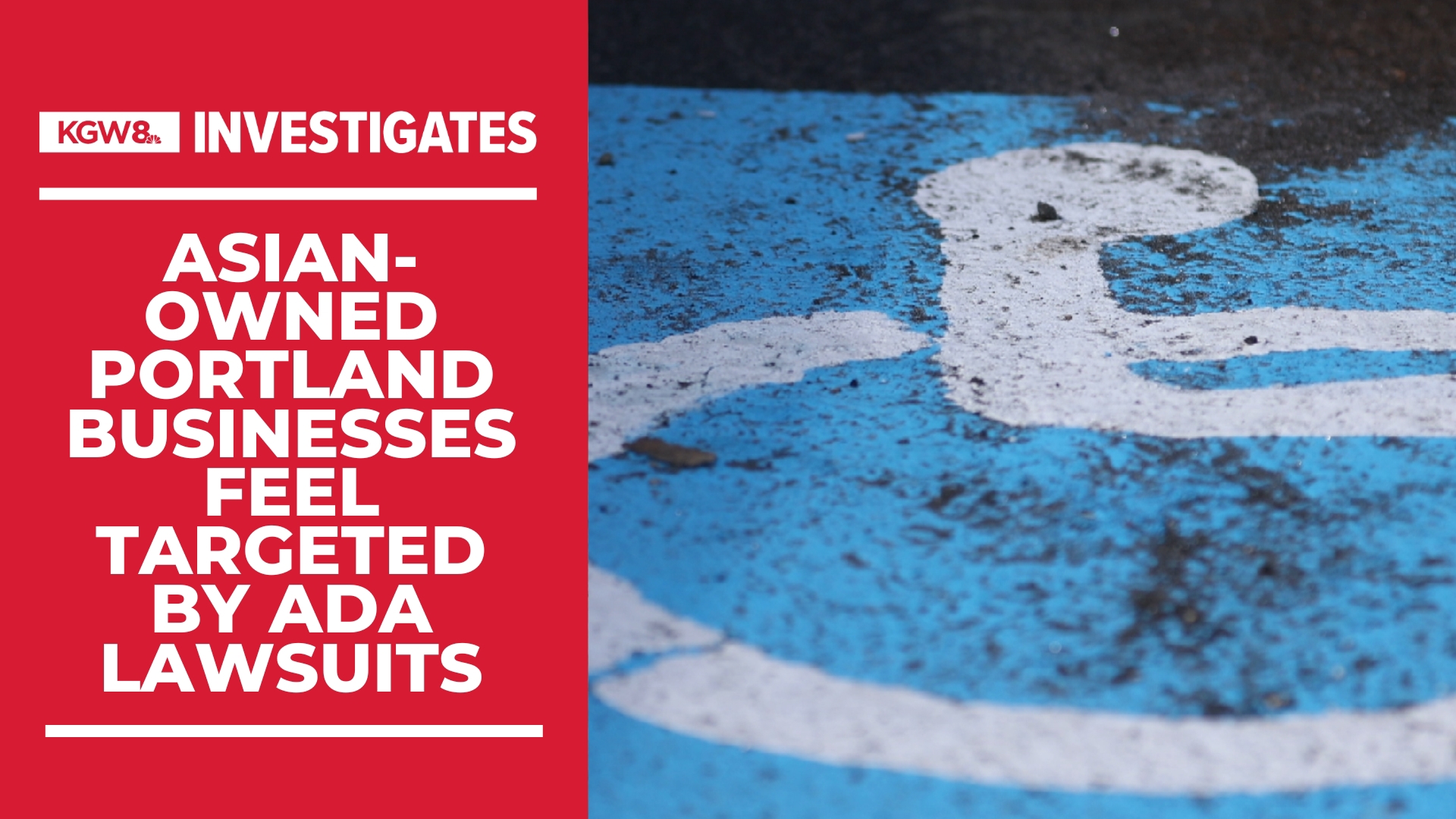PORTLAND, Ore. — Several Asian-owned businesses feel they were targeted by a pair of Portland lawyers who have filed dozens of Americans with Disabilities Act or ADA lawsuits over the past nine months.
"We're easy targets," said Sara Tran. One of the lawyers sued her mother, Hanh Tran, over alleged ADA compliance issues.
"We don’t know the law," said Hanh. "We don't speak well; the language and we don’t know how to get help."
Hanh emigrated from Vietnam when she was 19 years old. The Portland woman worked three jobs, seven days a week to provide for her three children. She saved and invested in a small strip mall roughly seven years ago.
"It's a dream to own the building," said Hanh.
The non-descript building on Southeast Clackamas Road in Clackamas is home to a hair salon, nail salon, a Thai restaurant and tattoo parlor.
The building didn't seem to have any problems — until Hanh got a demand letter from a Portland attorney claiming the property was in violation of the ADA. The initial letter didn't specify what needed to be fixed but proposed a settlement agreement. The lawyer wouldn’t sue if Hahn agreed to make repairs, bring the property into compliance and pay attorney's fees. But she had to act fast.
"We need to fix it within two weeks," explained Hanh.
Hanh hired a contractor to restripe the parking lot and installed the required van accessible parking signs within six days. Despite the improvements, the attorney Jessica Molligan still filed a lawsuit — leaving Hahn scared and confused.
"We don’t know the law, so it is like, the whole family. We worry," said Hanh.


In May, a KGW investigation found Molligan and another Portland lawyer, David Foster, had sued more than three dozen businesses in the Portland area since September. The convenience stores, restaurants and gas stations are accused of violating some technical aspects of the ADA.
In many cases, the owners said they were willing to make the fix. They just didn't like the lawyers' tactics — threatening litigation and demanding attorney’s fees, typically around $10,000 per case.
"It seems like it is extortion," said building owner Mike Davis.
The ADA is the 1990 federal law that protects the rights of people with disabilities. Title III of the ADA requires that all businesses open to the public must be accessible — meaning they must provide people with disabilities an equal opportunity to access the goods or services they offer. If businesses don't comply, they can be sued without warning. The federal government doesn't have an office to monitor or enforce the ADA, instead people with disabilities, their lawyers and judges help enforce the ADA.
New construction must be built according to the ADA's standards. Buildings constructed before 1991 must remove existing barriers when it would be readily achievable.
Since KGW's original reporting, at least a dozen other business owners have reached out to report receiving near identical demand letters or lawsuits. Most were Asian-owned businesses.
"We believe that they came after our businesses and are targeting minority communities, specifically Asians, because many of the business owners and property owners are first generation. Language is a barrier, and they have a tendency to not resist and just settle," said David Kim.
Of the now 47 ADA lawsuits filed by attorneys Jessica Molligan and David Foster, 22 of them — almost half — involved Asian-owned businesses, according to court records, state filings and interviews.
"Statistics don't lie. It's disproportionate," said property owner Rich Baek.


Those are the cases the records turned up, but there may be others. Many small businesses said they were told to keep things secret, and court records back up that claim.
A settlement agreement with Jessica Molligan shows that details about terms, conditions, and payments are to remain "strictly confidential." The secret paperwork only became public after Molligan sued an Asian-owned business that didn't pay her $6,000 in attorney's fees.


"Lawyers look bad enough and I think it makes us look even worse, unfortunately," said consumer advocate Michael Fuller. The Portland lawyer agreed to help Hahn for free. The case was eventually dropped, but not everybody has the same legal muscle to push back — especially small, Asian owned businesses.
"I am very heartbroken by this because my mom is such a hard working person and other people in the community are hardworking people too. And emigrants. We're the backbone of the community," said Sara Tran.
In response to KGW's emails, attorney Jessica Molligan wrote, "Asian businesses are not being targeted. That is beyond offensive."
The other lawyer, David Foster, withdrew from the ADA cases, and has since been replaced by Molligan.
"I am no longer acting as counsel," Foster wrote in an email to KGW. Foster went on to explain that he'd been hired as local counsel by an out-of-state firm, Wampler, Carroll, Wilson and Sanderson of Memphis, Tennessee.
So why would a Tennessee law firm want to pursue ADA cases in Oregon? The law firm didn’t respond to KGW's inquiries by email or phone.
It's not clear if Asian-owned businesses are indeed being targeted or if it's just coincidence. But either way, the court records suggest a segment of the community is being disproportionately impacted by threatening letters and lawsuits — and then, in many cases, told to stay silent about it.
Are you a business or property owner in Oregon who has received a demand letter or lawsuit involving ADA violations? If so, we’d like to hear from you. Please fill out this form.
- What is the ADA? (Korean)미국 장애인법(ADA)이란 무엇인가요?
- What is the ADA? (Mandarin) 什么是《美国残疾人法》(ADA)?
- Pacific ADA Center: Information for businesses
- ADA overviews by the U.S. Department of Justice: 'Businesses That Are Open To The Public' and 'A Primer For Small Businesses'

